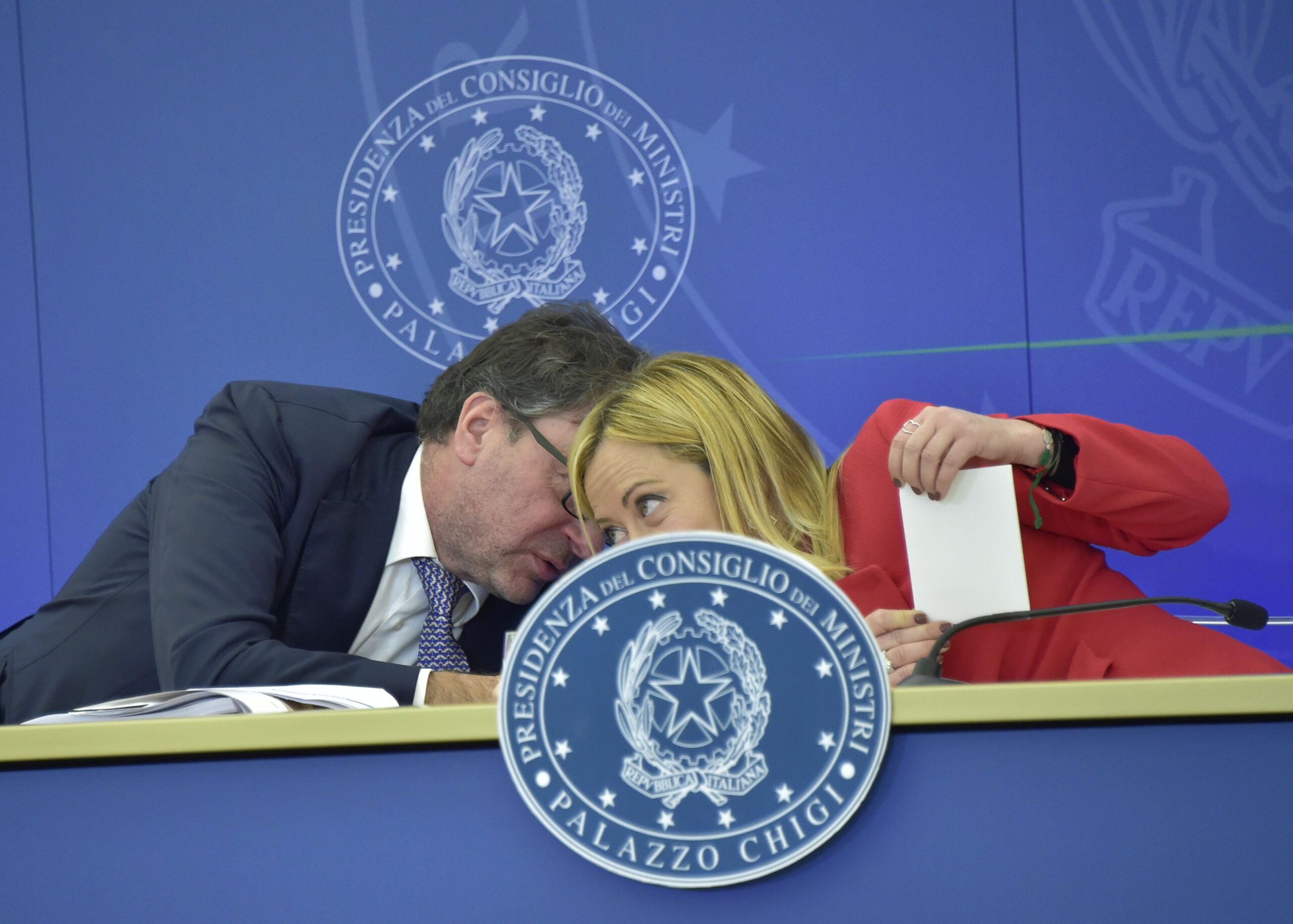How and why Intesa Sanpaolo and Unicredit snubbed the tax on banks’ extra profits

Tax on banks' extra profits: what Intesa Sanpaolo and Unicredit have decided. Comment by Giuseppe Liturri
It was the week of the announcements of the economic results, updated to the third quarter, of the two largest banks in the country, Unicredit and Intesa Sanpaolo.
Exciting numbers which delighted the shareholders but which will have caused more than a few discontent between Palazzo Chigi and via XX Settembre.
In fact, the two banks were also "forced" to reveal the amount of the so-called tax on extra profits that the State could have collected, if the same banks had not had the right to allocate a sum equal to 2.5 times the “theoretical” amount of that tax.
Which the directors promptly did – if they had not done so they would have damaged their respective banks, with relative responsibility before the shareholders – by exploiting that option and making it known that 1.2 billion (around 800 million Intesa Sanpaolo and around 400 Unicredit) will not arrive never in the Treasury coffers. For those coffers, it is only a small consolation that no revenue forecast had been prudently included in the accounts (who knows why…) and therefore no hole will be created.
In fact, that rule only served to force the banks to allocate a portion of the 2023 profit to reserves, rather than distribute it to shareholders. An obligation that has had no concrete effectiveness, as the flow of profits promises to be so copious to be sufficient both for the dividend distribution plan already envisaged and for the allocation to the reserve required by law, as a condition for not paying the tax.
But to achieve this objective, there is already the ECB Supervision which every year issues rather specific " recommendations " on the matter. Just remember the distribution bans imposed until September 2021. So the government rule didn't help with this either.
At this point, one can imagine the embarrassment for the banks' communication managers in the announcement of record profits and "non-tax" which could only be "unpaid". Moreover, precisely in the days in which the government in the budget law is scraping the bottom of the barrel, cutting, for example, the revaluation of pensions, to find some change to allocate to the weakest social groups.
And here, we really need to congratulate Dr. Stefano Lucchini, influential director of institutional relations and communications at Intesa Sanpaolo. He managed to overshadow (but also third…) the enormity of the fact that, legitimately, the bank does not pay over 800 million to the State, with a media offensive on two fronts, opened within a few hours of each 'other.
The move at the same time as the publication of the data on profits and taxes was the announcement of a spending program in favor of " social issues and against inequalities " for 1.5 billion until 2027, accompanied by a description of the interventions and the role institutional role of the bank in the social sphere, resumed on Thursday in Brescia in a special conference.
After just 24 hours the second effective shot arrived. Intesa Sanpaolo has announced that it will move independently and in advance of the ongoing union negotiations and that from this quarter it will grant an average increase of 435 euros to its employees. An unprecedented fact in the history of credit union relations.
Carlo Messina, CEO of Intesa Sanpaolo, did not fail to underline the role of the bank as " the main institution in Italy that deals with combating inequalities and social interventions ", inviting " not to trivialize when talking about subjects who are of the institutions" (whoever has ears to hear, let him hear, especially in Palazzo Chigi and its surroundings).
All very beautiful, Bruno Pizzul would have said. An operation that should be a case study in the best communication schools. A perfect “spin”.
Should commercial companies (subjects governed by private law) be responsible for the production of "public goods", such as the well-being of citizens and the reduction of inequalities, which are also constitutionally protected goods? For those goods there is the State, which acts with democratically elected institutions that pursue the public interest as the sole institutional goal and which finances those initiatives with taxes paid by citizens (including banks) and using private savings with the issue of public securities. We would have preferred to see those 800 million collected and spent by the State, even with all the (mythological) inefficiencies, but with the normal safeguards of transparency and control of a representative parliamentary democracy. We would prefer that banks do… banks, intermediating savings and financial investments and being accountable to their shareholders and not even remotely resembling a State within a State. Those who must be accountable to all citizens and who have been examined through regular elections should deal with inequalities, and the banks should think about ROE.
Does anyone remember any more about the 1.2 billion in taxes that the State refused to collect from the country's top two banks, which in other times would have dominated the front pages of the newspapers? Chapeau to Dr. Lucchini.
This is a machine translation from Italian language of a post published on Start Magazine at the URL https://www.startmag.it/economia/come-e-perche-intesa-sanpaolo-e-unicredit-hanno-snobbato-la-tassa-sugli-extraprofitti-delle-banche/ on Sun, 29 Oct 2023 06:49:02 +0000.
